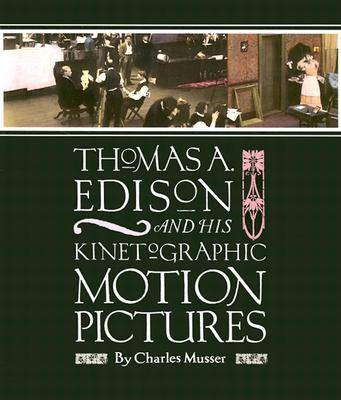Much controversy has surrounded Thomas A. Edison's role in the birth of motion pictures. His earliest biographers gave all honor to him; later historians gave credit to his assistants or to foreign inventors whose recognition Edison stole. Charles Musser provides a balanced assessment, arguing that while Edison left the day-to-day experimentation to his talented employees, he provided the ideas and encouragement as well as financial support. Without him, the technical hurdles would not have been overcome so quickly.
As time went on, and innovations in the motion picture business shifted from improving machines to improving the moving pictures themselves and the meyhods of exhibiting them, Edison's Laboratory lost its advantage. After three decades of patent wars and attempted monopolization of cameras and projectors, the battle moved away from the inventor and toward the producers and nickelodeon owners. Edison briefly experimented with a home movie projector, to steal a march on his rivals, but he was way ahead of his time. After thirty years, he closed down his movie studio and moved on to other projects.
This brief, informative story of Edison's key contributions to the invention of motion pictures is heavily illustrated and beautifully designed.
- ISBN13 9780813522104
- Publish Date 31 July 1995
- Publish Status Out of Print
- Out of Print 22 May 2013
- Publish Country US
- Imprint Rutgers University Press
- Format Paperback
- Pages 70
- Language English
